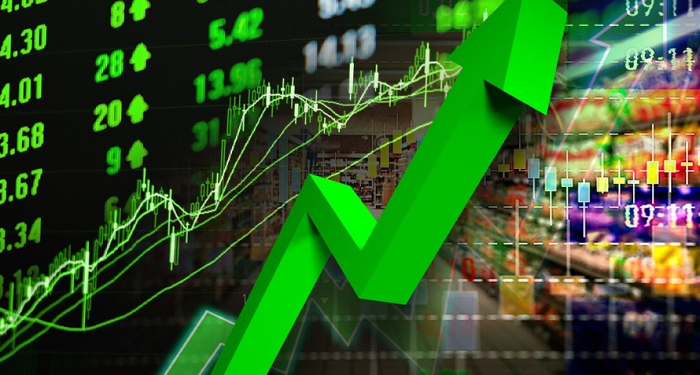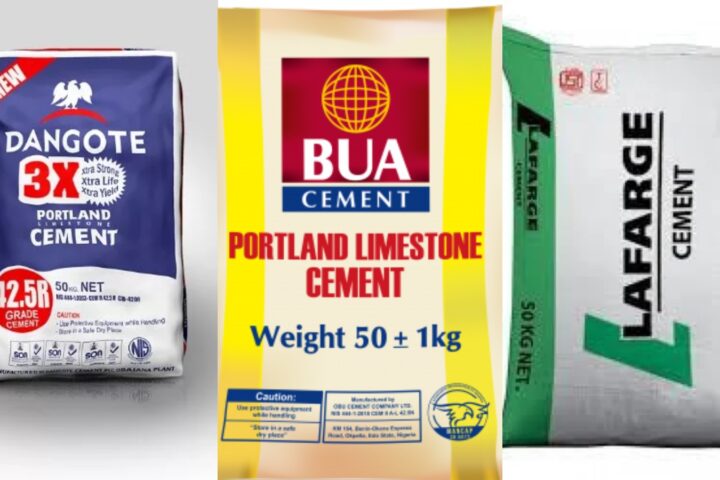Nigeria’s equity market has broken records, reaching a staggering N3.47 trillion in transactions during the first eight months of 2024, significantly surpassing the N2.41 trillion traded throughout the entirety of 2023.
This growth signals increasing activity and investor confidence, especially from local participants.
Join our WhatsApp ChannelThe monthly breakdown reveals an impressive surge. Investors traded N651.52 billion in stocks in January alone, the highest monthly figure so far in 2024.
The pace slowed slightly in February, with trades of N357.88 billion, followed by a recovery in March, which saw N538.54 billion worth of equities exchanged. The trend continued with N346.23 billion in April, N355.38 billion in May, N354.55 billion in June, N491.61 billion in July, and N379.52 billion in August.
In an interview, a stock analyst at the Nigerian Exchange Limited (NGX) remarked, “This unprecedented growth in Nigeria’s equity market demonstrates the resilience of our economy and the appetite of local investors for growth opportunities.”
Local Investors Lead the Equity Market Surge
The equity market boom is largely driven by local investors, who contributed 81.14% of the total transactions in the eight months, with a trade volume worth N2.819 trillion. This leaves foreign investors with just 18.86% of the equity trade, valued at N655.47 billion.
The divide between foreign inflows and outflows highlights another key aspect. Foreign inflows amounted to N299.73 billion, while outflows stood at N355.74 billion during this period. This suggests that foreign investors are not yet fully convinced of the long-term stability in Nigeria’s financial markets, with more funds leaving than entering.
In contrast, domestic retail investors dominated with trades worth N1.451 trillion. Domestic institutional investors closely followed, handling equities worth N1.367 trillion in the same period.
READ ALSO: Nigeria’s Equity Market Rises By 0.14% Ahead Of Monetary Policy Committee Meeting
A trader at a leading brokerage firm noted, “The dominance of local investors shows their growing trust in the stability of the Nigerian economy. The figures reveal that despite some challenges, the local equity market is thriving.”
Dip in August Transactions
Despite the overall positive picture, August saw a noticeable decline in trading activity. Total equity transactions fell by 22.80% from N491.61 billion in July to N379.52 billion in August. This is attributed to market corrections and investor caution amid broader economic uncertainty.
Domestic transactions experienced a significant drop, falling by 25.81% from N434.09 billion in July to N322.05 billion in August. Retail participation saw the sharpest decline, dropping 33.54% from N271.92 billion in July to N180.72 billion in August.
“August was a challenging month,” said a portfolio manager. “Many investors were uncertain about the macroeconomic conditions, and this hesitation reflected in the lower trading volumes.”
On the other hand, foreign transactions witnessed only a marginal decline of 0.09%, from N57.52 billion in July to N57.47 billion in August. This suggests that while local investors showed more caution, foreign players remained largely steady, albeit with limited participation overall.
Top 10 Stockbrokers Account for Over Half of Total Equity Trade
A significant portion of the equity market’s total value—53.83%—was handled by just ten brokerage firms. Leading the charge was Cardinalstone Securities Limited, responsible for trading stocks worth N359.18 billion, which represents 10.30% of the total market activity from January to August 2024.
Following closely behind were Stanbic IBTC Stockbrokers Limited, which traded N320.22 billion, accounting for 9.18% of the market, and United Capital Securities Limited, with N282.55 billion worth of trades, representing 8.10% of the total.
Other key players include APT Securities and Funds (N188.16 billion), EFG Hermes Nigeria Limited (N150 billion), Cordros Securities Limited (N126.68 billion), Meristem Stockbrokers Limited (N120.27 billion), CSL Stockbrokers Limited (N117.70 billion), FBN Quest Securities Limited (N108.52 billion), and Chapel Hill Denham Securities Limited (N104.54 billion).
“This concentration of trades among the top ten brokers is not surprising,” explained an NGX official. “They have the resources and expertise to handle large institutional trades, which make up a substantial part of the equity market transactions.”
Looking Ahead: Will the Equity Market Sustain its Growth?
While Nigeria’s equity market has shown incredible growth so far in 2024, the future remains uncertain. With the dip in August, some analysts are concerned about whether this record-breaking momentum can be sustained in the remaining months of the year.
“The rest of 2024 will be crucial for the equity market,” said a financial analyst. “Global economic factors and domestic policy decisions will play a significant role in determining if this upward trajectory can continue.”
As local investors continue to dominate the market, their confidence will be pivotal in maintaining this growth. Nonetheless, market observers will keep a close eye on foreign investor behaviour, especially given the imbalance between inflows and outflows. For now, all eyes remain on Nigeria’s equity market as it charts a course for the future.
Emmanuel Ochayi is a journalist. He is a graduate of the University of Lagos, School of first choice and the nations pride. Emmanuel is keen on exploring writing angles in different areas, including Business, climate change, politics, Education, and others.

















Follow Us